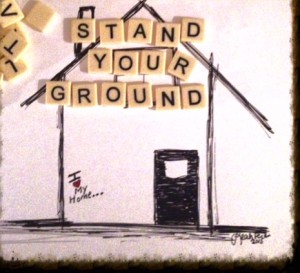Dyck-O’Neal, Inc., – Reviving the Homeowner Foreclosure Nightmare with Deficiency Judgment Lawsuits
Mon Jul 21, 2014 by Oppenheim Law on Florida Law News

Dyck-O’Neal, Inc., The Revival of the Homeowner Foreclosure Nightmare with the Use of Deficiency Judgment Lawsuits
A Brief Recap on the New Deficiency Judgment Deadlines
As I have explained in my previous blog posts and YouTube videos, July 1st 2014 was a key date in terms of deficiency judgments. If a bank had a foreclosure judgment entered in their favor at any time prior to June 30th, 2013 and the bank desired to file a lawsuit against the homeowner seeking a deficiency judgment, the deficiency judgment suit must be have been filed before July 1st, 2014. After July 1, 2014, under Florida Law, a deficiency judgment suit will have to be filed against the homeowner within one year after the entry of a foreclosure judgment or it can never be filed.
One of the reasons Florida legislators enacted this law is because they correctly recognized the burden and stress placed on constituents unsure of whether they were going to be sued for a deficiency years after a foreclosure judgment had been entered. It was a drag on the economy; plain and simple.
So who is Dyck-O’Neal, Inc.
Our firm has anticipated that there would be a rush by the banks to file deficiency judgment actions against homeowners as the clock ticked down to the July 1st, 2014 deadline. In fact, in June 2014 – Dyck-O’Neal, Inc., filed 323 deficiency cases in Broward County alone. We have also been retained to defend more deficiency judgment cases than the total amount of deficiency judgment cases we defended in all of 2013.
However, it is not just the banks doing the suing this time around. It’s also third party companies like Dyck O’Neal. Dyck O’neal, a company based out of Texas, has been filing thousands of deficiency judgment claims throughout the state and country. Since banks are well aware of the high costs in litigating claims against homeowners, most of them have chosen to act more efficiently and assign (sell) their deficiency judgment claims to third party collection companies like Dyck-O’Neal, Inc., for probably pennies on the dollar. These companies then attempt to squeeze whatever they can from homeowners in deficiency judgement actions and in many reported instances use harsh, harassing and aggressive methods to make the succumb to their demands. About 7 out of 10 deficiency judgment cases we are currently defending have Dyck O’Neal Inc. listed as the plaintiff. Dyck-O’Neal, Inc.,as been buying deficiency judgments from banks and going after homeowners like you since 1988. They are well versed and experienced in this game. You can be sure that they strategically chose which deficiency judgment claims to buy from the banks.
 How Are We Defending Against Banks and Companies Like Dyck O’Neal?
How Are We Defending Against Banks and Companies Like Dyck O’Neal?
During the initial “Complaint Stage” of deficiency judgment lawsuits, Oppenheim Law generally starts off by attempting to dismiss the entire case against the homeowner. We attack the deficiency judgment lawsuit filed by testing the legal sufficiency of the ‘Complaint.’ We also have seen many issues with ‘service of process’ in these new deficiency judgment lawsuits. During the “Complaint Stage” addition success is achieved by our associates challenging the substantive nature of the Complaint. For instance, many times the foreclosing bank discharged or “wrote-off” the deficiency amount after the foreclosure judgment was entered against the homeowner. In doing this, the banks received a tax credit by the IRS.
Oppenheim Law cases showed that the bank or their assignee (the companies they sold the deficiency judgment to such as Dyck O’neal) may not have a valid claim against homeowners since they have discharged the claim. If the deficiency judgment lawsuit is not completely dismissed during the initial “Complaint Stage” mentioned above, the Firm will move on to other, more technical strategies in defending your case. These strategies are unique and narrowly tailored to each of our clients’ specific needs based on the situation. Do Not Just Ignore the Deficiency judgement lawsuit 
If there is one thing that the homeowner will take away from this blog-post is that the worst thing they can do if faced with a deficiency judgment lawsuit is to simply ‘ignore it.’ The entity filing the lawsuit wants you to ignore it! Why is that? If after 20 days the homeowner that has been served has not taken legal action, the Creditor, Dyck O’Neal Inc. or whoever is suing for the deficiency judgment will move for a Default Judgment. Once they are granted a Default Judgment by the court they will move to:
- Garnish your wages
- Cease your bank account
- Repossess your car
- Attempt to liquidate your assets
Stand Your Ground! To put this in lay terms, they will hound you (homeowner or property owner) like a wounded dog for up to 20 years. G-d forbid should you die, they can and will go after your estate, vigorously.
Do Not Give Up Your Rights To Defend Your Home – ‘Stand your ground ‘ means: Do not give up your rights to defend yourself. If you would like to know more or are interested in a consultation with one of our experienced attorneys currently handling several deficiency judgment cases, give Oppenheim Law a call at (954) 384-6114.
We HIGHLY recommend you retain an attorney if have been or anticipate being sued by Dyck O’Neal Inc. or by any other entity seeking a deficiency judgment against you.




[…] was offering to buy all the real estate deficiency judgments that the banks had obtained during the housing foreclosure crisis over the past several years. […]
Does anyone question the HDC status of Dyck O’Neal? It is a known fact that Dyck pays pennies on the dollar for notes which are not in the normal course of business. Dyck is a lot like DOCX, when they need an allonge or an assignment to attempt to establish a relationship with the consumer. I question the buying and selling of all mortgage loans after default as they have already been through an action.(Res Judicata or Collateral estoppel). How about unjust enrichment base on the amounts paid ($10.00 – $100.00). Does it make sense to allow Dyck to profit or be unjustly enriched off of the hard working backs of American men, women, and children who end up hungry and homeless. I hope everyone will tune in on this issue.
I am only now questioning MTGLQ’s lawsuit against us in 2009. We were the poor fools in PHX between 2005 and 2007 when the crises really started. Bait and switch loan, sub prime when it should have been conventional, on and on. Wells Fargo foreclosed without NOD 11 months later, WHILE we were still paying payments. Anyway, when our marriage, family and lives fell apart we moved back to WI. still making super high payments….unknown to us, American Home Mortgage and Wells Fargo were racing to get the house back but never refused any payments. They had our WI address also.
We were broken and separated. So, foreclosure between 06 and 07 and we tried to get on with our lives. In 2009, MTGLQ Investors sued us for deficiency of 133,000. My husband (now ex) ignored the complaint, I do not know the reason. MTGLQ obtained a default judgement here, but in AZ deficiency judgements with non judicial foreclosure are not allowed. I went to courthouse recently and viewed documents. There were very few. Only thing on the complaint was our loan number and the INCORRECT AND FAR TOO HIGH deficiency. No property addresss (should the judge or our bankruptcy attorney have noticed???), no proof of loan, nothing. I know because it was ignored that we just roll over, however, I am angry that our bankruptcy attorney never questioned this. I lost my personal injury settlement the following year to this bankruptcy so YES, I am angry. In addition, the discharged balances continue to pop up on my credit reports by different purchasers, most recently Ocwen. FML.